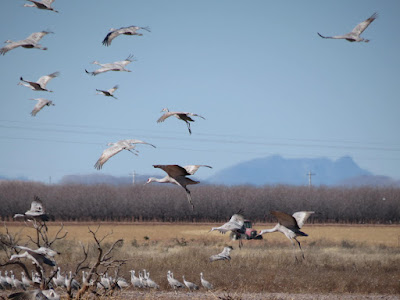[Note: This is a post I was working on over a week ago. It may not be "finished," but I'm tweaking it slightly and posting it today to clear the pipeline.]
Becoming Animal: An Earthly Cosmology, by David Abram (2011)
The Lost Art of Reading Nature’s Signs, by Tristan Gooley (2015)
Bittersweet: How Sorrow and Longing Make Us Whole, by Susan Cain (2022)
Anyone who loves philosophy or has had any serious relationship with it at all is at heart, I believe, either a Platonist or an Aristotelian. Neither of these ancients gave us a perfect philosophy: Aristotle defended slavery, and Plato believed philosophers should rule the people with lies. The history of philosophy, however, is usually seen as a gradual development, with each major philosopher in turn commenting on the thought of those who went before, accepting some parts of what they said and wrote, rejecting others, and building on what they keep.
This oversimplified evolutionary picture of human thought reminds me of the oversimplified cartoons of the evolution of human beings, the ones that begin with an ape and gradually, as the ape marches across the page from left to right, more upright with every step, become what we recognize as our own species. We don’t see evolution as scrapping its work at a certain point and going back to the drawing board or going off on tangents, but I believe false starts, discards, and tangents are very much a part of the evolution of philosophical thought.
Let me go back to my beginning today, only two paragraphs ago, and say this: I see philosophers across the ages, again and again, going back either to Aristotle or to Plato. That is, either recognizing that we are part of the natural world and find our truth there (Aristotle) or escaping into fantasies of disembodied, inaccessible truths presumed to be hiding behind the world of illusions in which we live (Plato). I see in the rejection of Cartesian dualism a return to Aristotle, who believed everything that lived had a soul. Even a turnip. Plato, infamously (as I see it), was uninterested in anything outside the life of the polis. Man in society: nothing else counted for him. His thought focused exclusively, that is, on man as separate from nature, as if nature were irrelevant.
So you see where I come down, despite Aristotle’s defense of slavery (one of his worst arguments) and his unenlightened view of women (study of biology barely begun at the time). Now for today's books.
I’ve written already of Susan Cain’s Bittersweet, and I’ll come back to it later in this post, so I want to begin with David Abram.
As I read Abram's accounts of hiking in the mountains of New Mexico, they are familiar to me from my daily walks here in the Arizona high desert, and at the same time his thoughts recall to me the thought of philosophers I have loved: he hasn’t mentioned Aristotle or Bergson (would no doubt object to the latter’s dualism), but halfway through the book I come upon names that had already been ringing in my head: Spinoza, Merleau-Ponty, Mark Johnson.
Sentience is not an attribute of a body in isolation; it emerges from the ongoing encounter between our flesh and the forest of rhythms in which it finds itself…. Human awareness could not exist without a human body, true, but it could no more exist in the absence of ground, leaf, and flowing water.
- David Abram, Becoming Animal
Nothing in the natural world is a machine, not our body or anything else it encounters, and so we are always in dialogue, necessarily, even if unconsciously – with the slope of the hill, the rabbit that starts and bounds away, even, Abram believes, with the rocks and the air and the sun.
(Where I think Abram would find Bergson’s thought congenial is in the distinction between lived time and clock time and in Bergson’s rejection of intellectual analysis as a means of discovering ultimate reality, while he very much appreciated its use in practical problem-solving. Will Abram use the term ‘intuition’ as I proceed in the book? I am about halfway at present. People have called Bergson anti-intellectual, but that is a gross misreading and distortion of his work. Bergson saw intellect as practical and necessary; he rejected it as a tool for metaphysical understanding.)
When I love a book, I find myself wanting to quote whole pages – and almost every page – but I will move quickly now to Tristan Gooley. The Lost Art of Reading Nature’s Signs is less philosophical, more practical. Gooley teaches us how to find our way (in the northern hemisphere) by the stars at night and by numerous daytime methods. He calls our attention to shadows and to the wind, to fog and clouds and lichens and algae, to shapes of trees and what kind of wildflowers, weeds, and crops are growing around us. Even rocks have stories to tell us: their size, where they lie, whether sharp or rounded. Many of his examples come from the U.K., rather than the U.S., and he gives only common names rather than Latin names of plants, but the general lessons are transferrable.
My hiking partner and I (and our dogs) climbed a new hill the other day, and since I’d been reading Gooley’s book I was much more aware of the clouds moving above us and the delight of walking through an invisible river of cooler air flowing over the hill. The Lost Art is not a book to read once but something to study so that the lessons have time to sink in. Here is a relatively simple lesson to apply to noticing wildflowers:
The first general rule is that if you come across two banks facing in opposite directions, one with a profusion of different wildflowers and the other with relatively few, then you have a strong clue that the popular one is south-facing.
- Tristan Gooley, The Lost Art of Reading Nature’s Signs
As I say, that lesson seems simple. It’s the ones about stars and clouds and wind that I will need to review multiple times.
These two very different books, for me, complement each other beautifully. There is so much to learn from Gooley’s observations and experience. And when I read Abram, happy tears often come to my eyes.
And those happy tears (were you surprised by them?) are my reason for connecting these two nature books with Susan Cain’s Bittersweet. Cain writes of bittersweetness as being “an acute awareness of time passing” and the recognition “that light and dark, birth and death – bitter and sweet – are forever paired,” as well as a natural human longing for perfection and for union, which explains our searches for God, for romantic love, for utopias and transcendence and immortality.
One early chapter of Cain’s book that focused on romantic love introduced a speaker (I had to return my library copy of the book and forget the name of the man giving the workshops) seeking to convince people that romantic love was a myth. I disagree. It isn’t that I think each of us is half a person, searching the world over for the only other half that can complete us. No, that makes no sense. But that if we are very lucky we may find a soul-mate? That I do believe, because it was my good fortune to experience that kind of love. But even so – and this will relate to experience in wilderness, also – the happiest of couples do not ride waves of bliss every waking moment. Ideally, there will be fun at times, contentment at times, and at times experience of transcendence and absolute union. And then we go to sleep or have to take out the dog (or the garbage) or get ourselves to work. Or we experience agonies of misunderstanding and resentment. Everything.
So it also with losing the talky, thinky self on a wilderness hike and feeling one with the wind. Or driving down the highway with my dog beside me when a hawk swoops in front of the windshield, and Sunny and I are together as the bird grabs our attention.
And always I remember being with the Artist in Michigan’s Upper Peninsula, the two of us reunited after a five-year separation, and he behind the wheel, barely inching along a dirt road and playing sweet tones on a harmonica, bringing tears to my eyes. (Yes, then, too.)
To experience union and transcendence at all is a priceless gift that comes and goes. Like a rainbow; like the sight of a wheeling hawk; like a beautiful song that comes to an end. The earth itself is not eternal, let alone the short-lived mammals that we are, but life is beautiful, the earth is beautiful, it is all precious, and the beauty grips our hearts because we are part of it all.
-----
Much as I would like not to end this post on a mundane note, I’ll say that I was all set to take three minutes to answer questions for Susan Cain’s online quiz, and then the first question had to do with television commercials. I don’t watch television, so how can I say if I get choked up over certain commercials? Have I, in the past? I’m kind of resistant to commercials, suspicious of them to begin with. But when I read David Abram or Susan Cain or even at certain moments Tristan Gooley, then yes, I do have an emotional response. Does that count, Susan? You tell me. I didn’t go on to look at the rest of the questions.
Oh, but wait, wait! That mundane note won’t be the end of the post, because I remembered something else I wanted to include: As I was reading, thinking of Merleau-Ponty long before Abram brought in his name, I was thinking also of a friend from graduate school days whose specialization was phenomenology and his “main man” (as the Artist liked to say of Bergson with reference to me) Maurice Merleau-Ponty, and I was thinking that I needed to e-mail Larry and ask him if he had ever read David Abram. I’ll remind you (or see my earlier post) that Larry, with his Ph.D. in philosophy, now makes his living as a stage magician. So imagine my absolute astonishment to come upon this memory of Abram’s:
Many years ago I journeyed through Southeast Asia, making my way as an itinerant sleight-of-hand magician, performing on street corners and at small family inns.
- Abram, op. cit.
What were the odds? I was gobsmacked! This surprise came in a beautiful chapter called “Depth,” something the author defines as “the dimension of closeness and distance.” In southeast Asia one day he had an experience of having the mountain that has been accompanying him on his hike all day long disappear into the fog.
It occurred to me then, staring across the boulder-strewn pass into the swirling vapor, that here was the truest archetype for my craft as a sleight-of-hand magician. I must strive to make my silver coins and my billiard balls vanish as completely as this cloud had coaxed the entire mountain to vanish…. To this day, whenever I roll a silver dollar across my knuckles, preparing to make it disappear, I bow subtly toward the remembered mountain and the monsoon clouds – an apprentice honoring his masters.
- Abram, ibid.
And yet, I have to admit that these days, this particular time of year, late February into the beginning of March, there is very little that does not bring tears to my eyes, whether sights or songs, music or words....
Gooley’s book is lessons, Abram’s is magic, Cain’s is you and me, and all three are all three. And there is a road for each of us.












